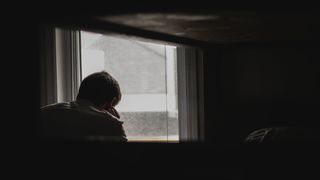Coronavirus Disease 2019
Depressive Thinking During the Coronavirus Pandemic
Five ways to reverse your negative thinking.
Posted March 20, 2020 Reviewed by Gary Drevitch

Some pessimism, sadness, and feelings of helplessness are quite normal under these conditions. It takes a lot to maintain your equilibrium during this pandemic. But there are things that we can do to cope better—to keep the depression that we might experience from unraveling and make us feel completely hopeless.
I have published previous posts on "Staying Home During the Pandemic: 10 Steps to Coping With Isolation"; "Are You Worried About the Coronavirus?: 7 Steps to Overcome Your Worry,"; and "Coronavirus Anxiety: How to Handle Fear While Pursuing Safety." Today we are going to focus on your depressive thinking.
The Cognitive Therapy approach, developed by Aaron Beck, stresses the importance of our thinking patterns. Depressive thinking is characterized by certain biases in how we think. It's as if you are wearing very dark sunglasses, and you conclude that it is night. But if you take off the sunglasses, you might find that it is really overcast—or, in some cases, dawn.
Some people incorrectly believe that cognitive therapy is the Power of Positive Thinking—or Happy Thinking. This is not true; it is the power of realistic thinking. And one way of doing this is to realize that there are several ways of looking at a situation. Let's say that cognitive therapy encourages flexible thinking—being open to a different way of viewing things.
Five Depressive Thoughts and How to Think Differently
Let's look at some common thoughts that you might be having during this time.
1. "I am doomed to die." This is called fortune-telling and catastrophic thinking. It means that we are predicting the future without having all the facts, and we believe that the outcome will be something that we cannot live with. Of course, it would be catastrophic if you or a loved one died from COVID-19. But right now, Anthony Fauci claims that the chances are very slim of dying.
As of today, March 20, 2020, more than 14,200 people have now tested positive in the U.S., and at least 187 have died. If we calculate the current proportion of people who have died, it is .00000056 in the United States (population 330 million). Of course, more people will die, but if we look at China, which has seen either no new cases or very few new cases, we observe 80,967 cases with 3,248 deaths for a ratio of .000022. (China has a population of around 1,480,000,000). Thus, in a country that had the first outbreak of COVID-19, the likelihood of dying currently is very, very low.
2. "I am completely helpless." This is an increasingly more common thought that people have as they find themselves unable to go to work while cooped up at home. But as I have pointed out in a previous post, "Staying Home During the Pandemic: 10 Steps to Coping With Isolation," there are a lot of things that you can do while at home. You can stay in contact with friends, use the internet, cook meals, exercise, learn some new skills or information, be supportive, meditate, get more sleep, and many other things.
There is a range of good ideas—especially using apps and online games—to keep your kids occupied. Some people have organized shared exercise classes, book clubs, and discussion groups with friends. Let's focus right now on what you can do, rather than focusing on what you cannot do.
3. "Everyone is dangerous." This is based on the belief that everyone out there could be a carrier of the virus. Now, I think that this is a good assumption—but it is inaccurate. For example, in China, 80,967 people have had or do have COVID-19. So, the likelihood of anyone having it is .00055. This is a very small probability.
However, you should use social distancing and proper hygiene with the assumption that anyone could have it. This is what I would call a useful illusion—but during an epidemic, it is practical. Follow all the guidelines recommended by the CDC.
4. "This is the end of the world as we know it." Unfortunately, this is a statement that well-meaning people often make. I have seen this on reputable news websites, on social media, and among people whom I have talked to. Again, this is fortune-telling with some catastrophic thinking and all-or-nothing thinking thrown in. But it seems to me to be quite irrational.
Here is why I think this is unrealistic. First, all epidemics come to an end. We have seen a decrease in new cases in several areas—China and Israel are most prominent in reducing the spread. Our history shows that Bubonic Plague, the Great Influenza of 1917-1921, Polio, smallpox, and other worldwide and local epidemics always end. And the world goes on.
Second, when we are anxious, we get anchored to our current situation—especially our emotions. These are habitual rules-of-thumb that we use—called heuristics—that lead us to have a biased way of looking at things. Psychologists call this anchoring and the emotion or affect heuristics. But we have been through epidemics, world wars, economic depressions, and natural disasters throughout human history. We often underestimate how resilient we are—as work by Columbia psychologist George Bonanno demonstrates.
We often think we won't be able to cope, but we do. Our current thinking leads us to believe that nothing will ever get back to normal. I am betting it will. Let's wait and see what happens.
5. "I will never feel better." This is a common belief that we have when we feel intense emotions. We predict our future emotions. I have seen this in my patients, my friends, and in myself. We predict our emotions based on how we feel right now. Psychologists call this affective forecasting—we predict our affect or our emotions. We predict that if something bad happens, we will feel bad for a long time, and we will feel extremely bad. But the research on affective forecasting by Gilbert, Wilson, and others shows that we are very bad at predicting our feelings.
For one thing, when we feel intense emotions, we underestimate how things might change or how we will cope better in the future. Think about yourself. How many times have you thought that the intense negative feeling that you have right now will never go away—will never decrease? But it did.
In fact, I know that when I am feeling a bit gloomy or anxious, I try to change my focus on activities or connecting with other people or reminding myself that we have been through difficulties before. My mood changes. In fact, you might want to keep track of your mood every hour of the day and see if the negative mood decreases at all. See if there are even some neutral or positive emotions.
Keep in mind that thinking differently is an experiment, something to try when you are feeling down. It doesn't mean that you deny the danger or think that everything will work out. But it allows you to consider the possibility that there are many ways of thinking, and this might give you some tools to cope when your mind seems to get hijacked.




